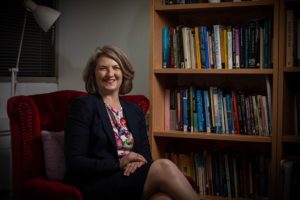Education industry experts eagerly await an announcement of plans to save a sector in crisis, ahead of a sold-out address by Education Minister Jason Clare at Canberra’s National Press Club later today.
This minister’s speech will address the interim report by the Australian Universities Accord, with the full report on the panel’s examination of various issues facing the nation’s higher education system due for release in December this year.
The panel is tasked with creating a long-term plan that meets both the current and future needs of the nation and has been actively engaging with students, staff, researchers, industry, businesses, professions and governments since the review was announced in late 2022.
For Professor Catharine Coleborne, these recommendations can’t come soon enough for the country’s struggling humanities education sector.
“What I want to see is equity of access to humanities degrees and humanities learning.” she told EducationDaily.

Enrollment rates for humanities courses have steadily declined in universities across the nation since 2013, as student interest shifts towards more lucrative STEM subjects, such as science and engineering.
This shift has been encouraged by previous governments. Higher education reforms introduced by the previous Morrison government almost doubled the price of some humanities degrees, while lowering the cost of STEM fields in an attempt to get students ‘job ready’.
“There is a perception of humanities as being less useful to students because it might not lead to vocational employment. That perception is absolutely incorrect,” she says.
“In reality, humanities is a discipline that translates to many different work environments. Studies from Oxford University even support this, with thousands of alumni with humanities degrees reportedly finding success being employed in a really wide range of workplaces and occupations.”
RELATED: University Accord Recommends Big Changes For Australian Universities
The future of humanities
When asked about what the future might hold for humanities studies, Professor Coleborne says the digital age has ushered in an exciting opportunity for students to engage differently with subject material.
“I think a lot of people still associate humanities with lots of library learning and book learning, but in fact the humanities have become very digital in their applications,” she told EducationDaily.
“There’s been a revolution in the way we think about studies of literature, studies of the past through history, and other related topics because we are now dealing with a huge amount of digital material.
“Going forward, we have to see the way in which we can train students to be aware of digital tools, digital modes and research so that they can keep pace with these technological disruptions.”
Professor Coleborne also says she wants to see core humanities principles permeate other fields of study in an effort to broaden the scope of student learning.
“Many universities are still quite stuck within the well-defined framework of degrees that don’t afford students the opportunity to explore their own curiosity and interests,” she says.
“I’d like to see a much more multidisciplinary approach that would allow the humanities to have a space and a voice inside other degrees. So, inside engineering, inside health studies or inside some of the sciences, for example.
Having previously served as President of the Australasian Council of Deans of Arts, Social Sciences & Humanities, Professor Coleborne currently teaches students at the University of Newcastle what it means to be human and the value of humanities thinking.
“It’s so important that students ask themselves what it means to be human and look at where we are going – and where we have been – as a human race.”








